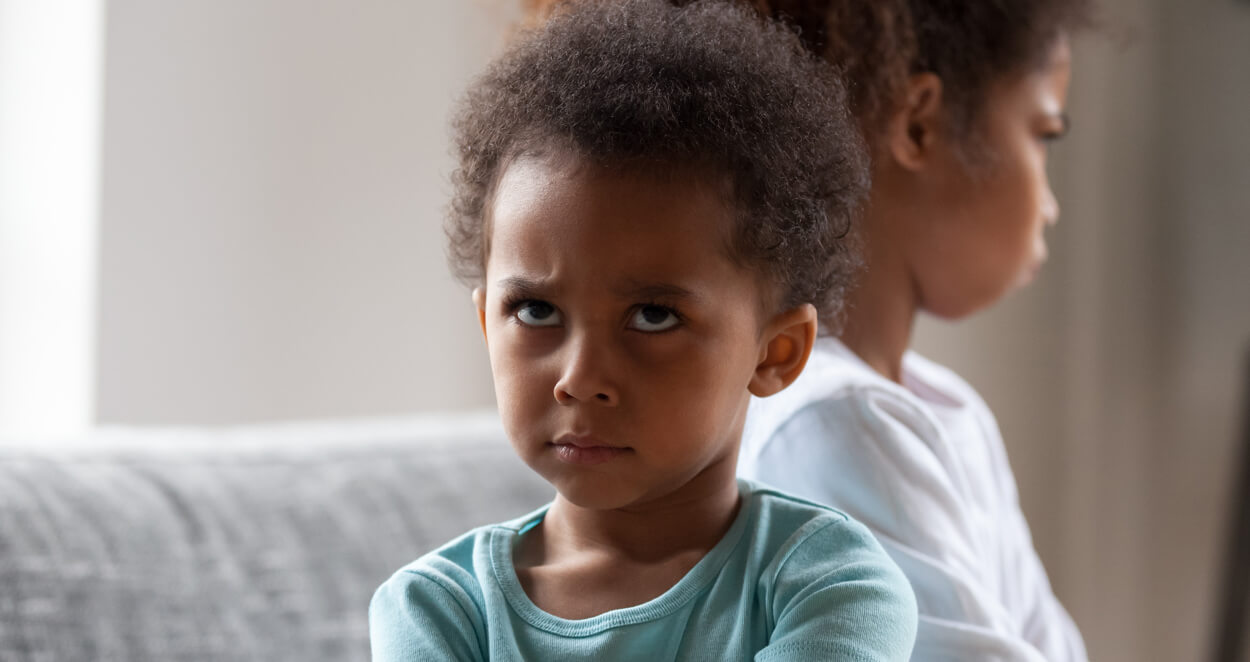Toddlers who hit

16 Jul 2019
Hitting is one of those begrudgingly, normal stages in toddlers, however, that doesn’t mean that it is acceptable or something you should wait for them to grow out of. It’s something that you need to address as soon as it starts - before it becomes a nasty habit.
Before you stay up at night wondering where you went wrong as a parent, a toddler usually hits because they don’t yet have much control over their emotional impulses and are still developing language skills. It has nothing to do with your reflection as a parent. It typically happens when they feel frustrated, overwhelmed or misunderstood when they cannot properly communicate or express what they want.
Redirection:
If you spot your toddler becoming agitated or aggressive towards others, try calmly remove them from the situation and allow them to calm down. Once they have calmed down a little, this would be a good time to talk about it. Most toddlers just want their wants and feelings acknowledged.
Spot the signals
If your child usually becomes more aggressive when they are tired or hungry, it becomes easier to manage the situation. Noticing the patterns and preparing for these situations can prevent them before they occur. Keep some snacks handy if you are out and about, and try not to let them skip nap time.
Consistency
If they get away with it once, they will try to get away with it again. Discuss the situation with your partner, teachers, babysitter or anyone who has a role in supervising your child to make sure that the message is kept consistent: that hitting is unacceptable.
Children often behave differently when they are in different environments, so it’s important to keep in communication with people that mind your child to identify your child’s triggers.
What to do when your toddler hits
Warnings and time-outs
Children need to learn how to correct their own behaviour, and giving them a warning gives them the chance to do so. If they don’t correct the behaviour after receiving a warning, they will learn that there are consequences.
Give them one warning straight away by telling them that if they do not correct their behaviour, they will be put in time-out. If they do not change their behaviour after one warning, follow through with the consequence of putting them in time-out immediately. If you don’t follow through with the warning, they will likely not take your warnings seriously in the future and therefore continue to push their boundaries further.
A time out can help them calm down and realise that hitting brings negative consequences. Make them sit in a time out for a short period of time – one minute for every year of your child’s age. So a four-year-old would be in a time-out for four minutes, for example.
Once the time-out is over, sit with them and talk about what happened and why they were put in a time-out.
Move on
Toddlers have short attention spans, so you need to address the incident immediately. Punishing them by not giving them dessert or not letting them watch their favourite show may confuse them because the hitting incident will likely already be forgotten, and it won’t help them understand the correlation between hitting and losing a privilege.
Praising good behaviour is just as effective in correcting behaviour. When you see your toddler playing nicely or sharing, praise them. Like most things regarding children, try to keep as calm and patient as possible. There may be occasions that your toddler hits to get a reaction out of you. In their still-developing minds, both good attention and bad attention will do - as long as it’s attention. Calm, communication and consistency – with those three C’s, you’ll be just fine.